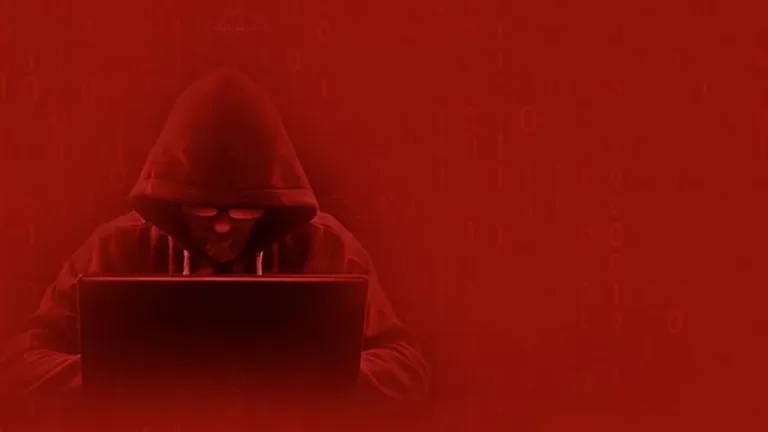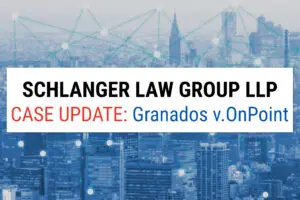Most Americans have at least one financial account that allows electronic deposits and withdrawals. However, very few people know about the Electronic Fund Transfer Act (EFTA) until they realize something is wrong. At Schlanger Law Group, we help victims of unauthorized transfers recover their funds and protect their rights when facing big financial institutions.
Here’s one of their stories…
Look Out For Multiple Unauthorized Transfers
The unsuspecting victim, we’ll call him Joe, had a bank account at Chase Bank. Earlier this year, a cyber thief hacked into Joe’s account and made two small transfers—one for 28 cents and the other for 64 cents. When those transactions were completed, the thief stole $6,000 from Joe’s account. The money was electronically transferred to an account held at Credit Karma in Joe’s name. Joe has never had a Credit Karma account, so this account was also part of the scam.
At first, Joe did not catch the two small transfers, but he certainly noticed $6,000 missing from his account. He immediately called Chase to report the theft and dispute the $6,000 transfer. Joe was told he needed to fill out a specific form, but Chase never sent the form. After visiting several locations to obtain and submit the form to report this incident, Joe received a response in less than two days.
Chase had determined that the Credit Karma account was held by Joe (or someone with his profile) and since Joe did not dispute the two small transfers that happened before the $6,000 transfer, all three transactions were authorized. That’s when Joe contacted our office.
Does the EFTA Apply to Joe’s Situation?
Cases covered by the EFTA must meet five requirements:
- A “consumer” (a natural person, not a business entity) must be involved,
- The withdrawal must be an electronic transfer, not a check or wire,
- The account must be held by a financial institution such as a bank,
- The account must be established for a personal, family, or household purpose, and
- An access device must be used. Access devices can include an ATM or debit card, a code or PIN, or another method to access the consumer’s account.
Also, to receive protection under the EFTA, the transaction in question must be an “unauthorized transfer.” Under the act, unauthorized transfers are transfers involving a consumer’s account, that were initiated by someone other than the account owner, without the account owner’s authority, and the account owner must receive no benefit from the transfers.
Because Joe’s case meets all the EFTA requirements, he has certain rights under the act and the bank had certain obligations once Joe reported the theft. In general, the bank must investigate the disputed transfer and send a written decision to Joe within 10 days of his fraud report. The bank must explain how it reached its decision and the documents or information reviewed.
What Did Joe Do Wrong, and Can the Unauthorized Transfers Be Fixed?
Chase bank realized that Joe did not dispute the two small unauthorized transfers that happened before the $6,000 was taken. Chase used this minor error to support its argument that the first two transfers were authorized so the third must be as well.
Of course, when Joe saw the $6,000 transfer, he was angry and upset but wisely he took immediate action to dispute what happened. He never meant to approve the tiny transfers during the time he was fighting the larger problem. However, Chase used this technicality as an excuse to avoid liability and repayment to Joe.
As soon as Joe came to our office, we reviewed his situation and took steps to limit his losses, protect his rights, and gather information in case we need to file a lawsuit on his behalf. We instructed Joe to send another letter to Chase, clearly stating that he disputes all three unauthorized transfers to Credit Karma, demanding a full investigation, and the right to see all documents relied upon by Chase in reaching its decision.
What Will Happen to Joe’s Money?
According to the EFTA, the bank has the burden of proving that any disputed transfers were authorized by the account holder. So, Chase now has the obligation to show how the three transactions were authorized by Joe. We do not expect Chase to change its prior position, so we are prepared to take further action to protect Joe’s rights.
This situation is a great example of how the smallest details can affect a claim for a fraudulent electronic transfer. If you have a financial account that allows electronic transfers, be sure to:
- Watch your financial accounts and review every monthly statement immediately to detect unusual activity,
- Contact your bank immediately (preferably within the first two days) to dispute any suspicious transfers,
- Follow up with the bank in writing to protect your rights, and
- Keep copies of all documents related to your dispute in the event you need to file a lawsuit.
We’re Ready and Willing to Face the Big Financial Players
The skilled team at Schlanger Law Group has decades of experience fighting for consumers who are victims of identity theft, unauthorized transfers, credit report errors, and more. We can guide you through these complicated situations and protect your legal rights. Call us at (212) 500-6114 or complete our simple online form to schedule a free case consultation today.







